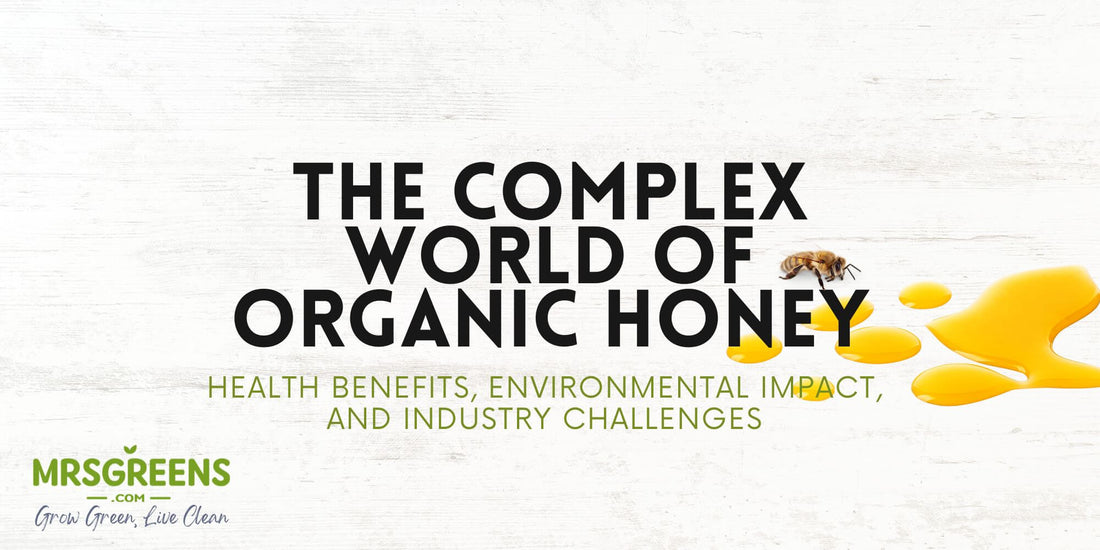Organic honey is often celebrated for its purity and adherence to strict production standards. However, this accolade comes with a set of complex environmental and ethical considerations.
Production and Global Sources
Organic honey is primarily produced in countries with large, unspoiled natural landscapes, such as India, Brazil, Mexico, Uruguay, and Argentina. These regions are chosen to fulfill the rigorous criteria for organic certification, which includes being distant from urban pollution and non-organic agricultural practices. But just because it says organic does not mean it is.
USDA Certification and Industry Challenges
Interestingly, the USDA does not certify honey as organic. Thus, organic honey sold in the U.S. is imported and certified by the exporting countries.[1] This situation has led to significant challenges in the industry, including widespread food fraud. The organic honey market has been impacted by various types of fraud, such as adulteration and label deception, posing economic threats to authentic honey producers and confusing consumers. [2]
Nutritional Aspects
While organic honey is produced in environments free from pesticides and contaminants, there's no conclusive evidence suggesting it's nutritionally superior to non-organic honey. Its main advantage lies in its eco-friendly production process.
Environmental Paradox
Organic honey's environmental impact is paradoxical. Despite its eco-friendly production, the long-distance transportation required to bring it to consumers significantly contributes to greenhouse gas emissions. Additionally, the packaging and distribution processes add to its carbon footprint. This factor is particularly concerning when compared to locally produced honey, which often has a lower carbon footprint due to reduced transportation needs.
Balancing Health and Environmental Impact
Consumers and eco-conscious brands face the challenge of balancing the purported health benefits of organic honey with its environmental drawbacks. Recommendations include:
- Exploring Local Options: Considering locally produced honey, which may not be certified organic but is made using sustainable practices.
- Moderation and Mindful Consumption: Using organic honey in moderation as part of a balanced eco-conscious diet.
- Staying Informed: Keeping up-to-date with developments in sustainable beekeeping and transportation.
Additional Reading:
Buying Organic Honey? Here's What You Should Know. | Civil Eats
Mrs. Greens' Approach
At Mrs. Greens, we continuously evaluate our product range to align with both health and environmental stewardship. We encourage our community to join us in this journey of mindful consumption for a healthier planet.

